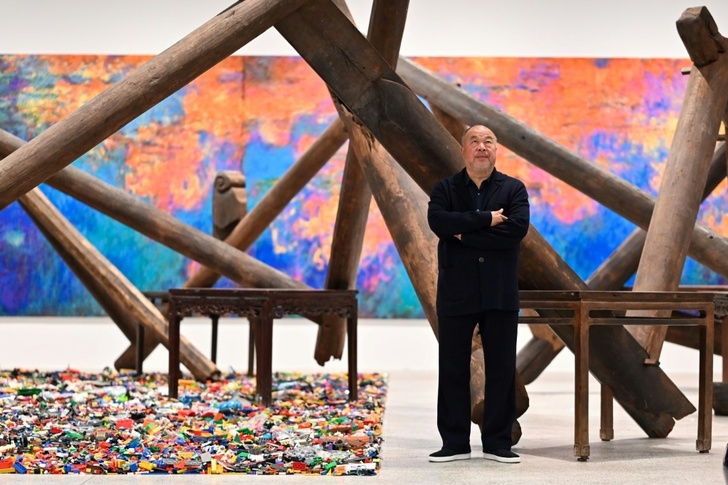China feels it has the "right to redefine the global world order", Chinese dissident artist Ai Weiwei told AFP on Wednesday ahead of the opening in London of his first design-focused exhibition.
The show at the capital's Design Museum features hundreds of thousands of objects collected by the Chinese artist since the 1990s, from Stone Age tools to Lego bricks, and draws on his love of artefacts and traditional craftsmanship.
The son of a poet revered by former communist leaders, 65-year-old Ai is perhaps China's best-known modern artist and helped design the famous "Bird's Nest" stadium for Beijing's 2008 Olympics.
But he fell out of favour after criticising the Chinese government and was imprisoned for 81 days in 2011 and eventually left for Germany four years later.
Among the artefacts in the new exhibition are thousands of fragments from Ai's porcelain sculptures which were destroyed when the bulldozers moved in to dismantle his studio in Beijing in 2018.
Launching the show which opens on Friday, Ai, said he believed China was "not moving into a more civilised society, but (had) rather become quite brutal on anybody who has different ideas".
"Tension between China and the West is very natural," added the artist, who has lived in Europe since 2015.
“China feel they have their own power and right to redefine the global world order.
"They think China can become an important factor in changing the game rules, basically designed by the West world," he said.
And he said that even though Europe had been relatively peaceful for 70 years there were many problems including much less concern for "humanity" and threats to "freedom of speech".
- Lego bricks -
Objects due to go on display include 1,600 Stone Age tools, 10,000 Song Dynasty cannon balls retrieved from a moat and donated Lego bricks which the artist began working with in 2014 to produce portraits of political prisoners.

They include a piece entitled "Coloured House" featuring the painted timber frame of a house that was once the home of a prosperous family during the early Qing Dynasty (1644–1911).
Exhibition curator Justin McGuirk said the things Ai had been collecting over the years represented "a body of evidence about different histories, different cultural moments in China's history (that...) maybe have been forgotten or not thought about enough”.
"Ai Weiwei always makes something out of destruction and plays on the idea of construction," he added.
"Making Sense" will run from Friday until July 30.
mc/har/pvh
© Agence France-Presse
Your content is great. However, if any of the content contained herein violates any rights of yours, including those of copyright, please contact us immediately by e-mail at media[@]kissrpr.com.
Source: Story.KISSPR.com

